But there’s another perspective of propriety. LDS singles can hold bitterness in their hearts towards someone they fault for their singleness. Never married singles can begrudge dating relationships that never worked out or simply never happened. Divorced singles can blame a former spouse. Widowed singles can embitter themselves towards whatever caused their spouse to die. Yet regardless of the cause, embittered singles can have beauty for ashes when they embrace the Savior and forgive. It begins with awareness Perhaps Sister Yee’s address spoke to me because I have my own need to forgive. My stake does absolutely nothing for singles. My leaders have responded to my pleadings by calling a stake rep who does absolutely nothing. They seem tolerant of a status quo in which sorely needed blessings are not received. Naturally, what results inside me is a roller coaster ride, and I’m not talking about my pancreatitis (although I could be)! I know I shouldn’t hold a grudge, and so I want to resist the conclusion that my leaders simply don’t care. At the same time, I struggle to see any evidence that they do care. I’m left resisting a bitterness launching itself at my door, eager to enter, and I’m tiring. In that context, Sister Yee’s recounting of the Old Testament story of Abigail seems apropos.
I like that phrase — “the weight of a warring heart.” It’s so poetic and yet so profound. It happens with belief If awareness is the first step towards forgiveness, the second must surely be belief. You must believe it’s possible for you to forgive before you’ll ever attempt it. If you truly believed it would never happen, you wouldn’t even try. This is where many who need to forgive stop. They somehow link forgiveness with the other person, the object of their bitterness and hurt, rationalizing that since said person will never comply with whatever their judgment demands, forgiveness simply isn’t possible. That link becomes especially strong when that other person offended egregiously. But forgiveness isn’t about the other person; it’s about you. It’s about stopping the canker of bitterness from blinding your vision and consuming your heart. It’s about healing the cancer that would steal your soul. Holding a grudge never punishes the other person; it punishes only you. That’s why I found Sister Yee’s personal testimony about forgiveness so moving. Her experiences encourage belief that forgiveness is possible, even when the hurt cuts very deep.
Her confession that she “still has work to do” makes relating to her experience much easier for me. And her hope for herself give me hope for myself. It continues with choice Yet the part of Sister Yee’s address I appreciate the most appears towards the end, where she reminds us of the importance of timing and adapting that timing to the individual. Not everyone heals at the same rate, and so we should be tolerant as others pursue their path of coming to Christ in their own way. That admonition to avoid judgments of timing is best applied within yourself. Extend kindness to yourself and allow your heart to take the time it needs to open to the Savior and experience the miracle of forgiveness. That kindness you extend to yourself by not insisting on a particular timetable promotes the healing you need. As Sister Yee testifies,
That last part is, I think, the key part of the journey of transformation the Savior promises. Unless you give to others what you have been denied, you’ll never be fully healed. Many LDS singles have been given ashes in their lives, but to receive beauty for your ashes, you must give beauty to others, for you always get what you give. So release the weight of your warring heart, believe forgiveness is possible, be kind with yourself, and give to others what you’ve been denied. When you do, you will find beauty from the ashes of your life. And that will bring you more joy in your journey.
0 Comments
The gospel has the answers I freely admit my ignorance. I’ve never been married or a parent, so I don’t fully understand the challenges of single parenting. But I do understand singleness and recognize several principles Brother Romney shared that apply to all LDS singles, regardless of age or circumstance. First, and perhaps most importantly, the restored gospel holds the solutions to life’s problems. You’ll see many of those solutions only after adopting the perspectives the restored gospel encourages. Far too many LDS singles think a solution will eliminate their problem so they can live more comfortably. Often real solutions instead allow you to leverage your problems so you can grow and become more than you were before. Brother Romney brought out that perspective beautifully. The hope, joy, and strength which he found as a single father came from “small, simple things” like family prayer, expressions of encouragement, magnifying callings, and seeking direction from inspired leaders. Our Heavenly Father has a plan of happiness for you. That plan might not resemble the one you’d make, but His plan will best help you attain maximum happiness. You’re not in it alone In his article, Brother Romney raised an excellent question: “I was a father trying to raise daughters on my own. . . . How could I help them prepare to become women?” This variation on the more common theme of “How can I meet the challenge when I don’t seem fit for it?” has troubled many LDS singles. Yet the answer again lies in perspective. No matter your situation, you’re in this alone only if you want to be. Brother Romney found many resources of support for his situation, including family members, neighbors, and ministering brothers and Church leaders. We all have more resources than we think we do. We just need to apply the Savior’s teaching: “Ask, and it shall be given you; seek, and ye shall find; knock, and it shall be opened unto you” (Matthew 7:7). Brother Romney rightly mentions that “not everyone will experience this same level of support.” Wards are people, and people are all at different points of progression along the eternal path. Some just haven’t yet progressed that far. Notwithstanding, the Lord won’t leave you comfortless. He’s provided people around you, sometimes in and sometimes out of the Church, who’ll help in some way. You just need ask, seek, and knock. As Brother Romney acknowledges, “until we let others know the gaps we see . . . those individuals may not understand how they can help.” The squeaky wheel does indeed get the grease. The Lord knows you intimately Ultimately, the Lord won’t abandon you. He loves you too much to do that. Not only will He walk by your side, the Lord will provide a strength to persevere only He can provide. The same Lord Who’s assembled a plan for your maximum happiness, restored His gospel offering needed perspective, and provided resources to support you is also intimately aware of you. He knows what you need in the moment you need it. He knows how overwhelming your specific combination of challenges and circumstances can feel. He submitted Himself to all things “that he may know according to the flesh how to succor his people according to their infirmities” (Alma 7:12). Through the enabling power of His Atonement, Christ can help you do what you otherwise could not. No matter the challenge, whether it be raising daughters as a single dad, raising sons as a single mother, or simply finding joy in LDS singles life, you can partner with the Lord and leverage your challenges to grow and become something more than you were before. When you do, you’ll grow so much you’ll transcend your challenges. What once seemed overwhelming will be no more than an afterthought. And all along the way, you’ll feel the strength of the Lord abiding with you. And that will bring you more joy in your journey.
The natural man and woman (and yes, they are worth distinguishing) drive the dating decisions of far too many LDS singles to prize the worldly over the eternal. The natural mindset informs our assumptions about what’s acceptable, which in turn drives our dating thinking and dating behavior. When you view the bigger picture, it’s not hard to see we need to reject the natural mindset. Begin with awareness This may shock many, but it needs to be said because awareness is the first step towards positive change. The vast majority of LDS singles make decisions about dating with the natural mindset. They prioritize self and attributes that don’t really matter in the hereafter (or even very long in this life, for that matter) over what will truly matter in the eternities to come. Their thinking is all about this life and more specifically, their life. In contrast, the covenant mindset prioritizes making and keeping sacred covenants. Covenant men and women value consistently living the restored gospel. Having a covenant-minded partner is more important to them than physical attraction, money, fame, or status. Covenant men and women will choose to date someone who may lack in those attributes but who has that commitment to the covenant lifestyle. Now, I want to make clear I’m not suggesting any two active LDS singles should come together on that basis alone. We’re not interchangeable parts. We’re all unique, nuanced individuals, and our dating decisions should acknowledge that individuality. But that individuality finds best expression within a covenant relationship with someone who prioritizes covenant living. Recognize the danger Yet many LDS singles prioritize finding someone who today excels in desired attributes. They want perfection up front when the perfection they insist on having really comes only after a lifetime of work. It’s an impossible standard leaving many singles unnecessarily single. And there’s a dangerous assumption lurking behind that standard. It’s the assumption your marriage is all about you — your happiness, your life, your eternity. But correctly understood, your marriage is not about you. Yes, it has to do with you, but it’s not entirely about you nor even principally about you. Your marriage is about your companion and your children — the family you’ll create together. That often means giving up something you want for yourself in order to prioritize something for them. That’s why the natural mindset is so dangerous. Thinking your marriage is all about you engenders a selfish approach to dating and marriage, one that prioritizes what you want over making and keeping sacred covenants. What do you expect results from that approach? It’s exactly what we increasingly see — more and more singles remaining single and more and more singles who do get married struggling to make their marriage last. You don’t get maximum happiness outside covenant living, and the covenant lifestyle doesn’t work when you prioritize self over covenant living. Correct your thinking  And that’s why the natural man and the natural woman are enemies of God. When you prioritize self over covenants, you prevent families, which play a key role in our Heavenly Father’s plan, from being created and nourished. The real obstruction is the insistence on having nothing but the best in a companion. It’s the associated idea that “settling for second best” can’t lead to happiness that prevents us from having our maximum happiness. Only inside sacred covenants can we find maximum happiness. Happiness is about giving, not having. So few of us are genuinely top shelf by worldly standards anyway that allowing the natural mindset to drive our dating decisions under the false belief that “settling for second best” leads only to misery is what’s really making us miserable. If you want your dating journey to lead to maximum happiness, reject the natural mindset. Start by learning what you need to reject. Consciously choose to act with a priority of covenant living rather than selfish desire. And embrace Christ’s wondrous Atonement. When you do, He’ll purify your desires so that what you sincerely want is what you should want. Then making the right choices becomes easier. And that will bring you more joy in your journey.
That attitude has everyone accepting only “top shelf,” which is great if you can get it but isn’t essential to maximizing your joy in life. That maximum joy comes from embracing good enough. And just like worthiness is not flawlessness, good enough is not flawless. Embrace change in you How incredibly ironic that many LDS singles expect perfection in an eternal companion but then also expect they’ll be completely acceptable in their imperfection. They expect the “perfect” person to love them for who they are as they are. It’s as though change has no place in their equation. But change is at the heart of the restored gospel of Jesus Christ. Indeed, the idea we need to change or be lost forever is core to the Atonement, the central part of our Heavenly Father’s plan. Expecting a companion who doesn’t need to change isn’t just unrealistic; it stands at odds with the gospel plan. That plan has us here in mortality with imperfections galore. We’ll all have many flaws as we journey through this mortal life. Elder Wilcox noted the same principles as he responded to this hypothetical question:
Too many LDS singles aren’t progressing in their dating journey because they insist on not changing, that anyone who can’t love them as they are obviously isn’t the perfect companion. But the truly perfect companion is one who will both love you as you are today and not leave you as you are today. The perfect marriage is the union of two imperfect people who work together to perfect each other. They accept each other as they each are today, but they don’t accept staying that way. Embrace the longer road  Some LDS singles undoubtedly reject the idea of change because they know what change will mean. Seeing themselves in all their imperfections, they know how much work correcting those imperfections will require. It’s much easier to cling to the thought of a “perfect” companion than to put the hammer down and do the work which change in self requires. Yet doing the work is the more practical approach. No matter your approach to your dating journey, the fundamentals will always operate. You don’t progress without the necessary agreement, and you don’t get that agreement unless you’re agreeable enough. So progress in the dating journey often means traversing a longer road of change through hard work. That’s how all of life is designed to be. Elder Wilcox recognized that design when he declared,
Just as worthiness isn’t about perfection but about patience and persistence in walking the covenant path, so your dating journey isn’t about finding the perfect person but about finding the type of person who’ll walk with you as you help each other become perfect together. Embrace all the joy  If you’ve sincerely tried to walk that path yet feel beaten down by failure after failure, don’t succumb to surrender and change your destination away from eternal blessings. When the destination is eternity, it’s always better to deal with frustration by changing your approach. Many share impatience as an imperfection, so it’s not surprising many LDS singles want the changes they seek to happen now. Yet often the changes we seek will not come overnight or all at once. Elder Wilcox taught this principle as he shared the story of Damon, a young man who struggled with his own changes. In the end, Elder Wilcox recommended,
Good enough is not flawless but is committed to positive change. Embrace needed changes in you and others as well as the work those changes will require. And embrace the Lord by partnering with Him for your journey. You’ll find it easier to make progress and more support as you do. And that will bring you more joy in your journey.
Looking back on my decision and its outcome, I still have no regrets. But I also have something else, something that I didn't anticipate. Looking back on my trip and my lack of regret for it got me thinking. Why can't it be that way for everything in my life? Why can't I simply decide to live without regret? Begin with the end  I don't regret my trip because from the start I saw it for what it is. I don't know the future, but I know that, if that opportunity to see my mother would be the last to make memories while she could still recognize me and I didn't take it, I would regret it for the rest of my life. I refused to live with that regret. And so I embraced my travel with the end in mind. And that's the key. Stephen Covey's first habit of highly effective people is to begin with the end in mind. That speaks to the need to be self-aware. After all, you can't begin with the end you aren't aware of. That's more than just an awareness you want a life without regret. It's an awareness of the choices you can make today that promote or prevent that end. I didn't know and still don't know whether the opportunity I just took is the last to be with my mother while she still recognizes me. But I do know the potential it had to become such. And I refused to tolerate that possibility. Become aware and act  It's really not any more complicated than that. Gain an awareness of yourself and the potential your choices have to lead you towards or away from the end you want. And then act accordingly. That's not just for living life without regret. That's for any end you want in life. Adopting an end in which your life has no regret is just a good place to start. It will give you courage to go farther and pursue your fullest potential, a life without regret, the life that is your best life. The path that leads you there will of course have challenges. I faced resistance before making my journey to see my mother. My advisor expressed disapproval with my decision to travel home. But I held firm and shared my rationale for my decision. He understood, and we made plans for what would happen after my return. I don't think everyone will have that experience. Sometimes things won't work out. Sometimes you'll stand your ground, and your challenges will overcome you. But you can always hold your head high knowing you chose to live your life without regret. Make your choice today  I've made plenty of choices that brought regret into my life. I've known regret in both the short and long term. And now I know it doesn't have to be that way. I can live without regret. So can you. You can live without regret if you will gain the awareness you need of yourself and your choices to know the end you want and then make those choices that will lead you to that end. That decision won't remove the regret you already have from past choices. Only Christ and His Atonement can do that. But you can decide to embrace the Atonement, just as you can decide that from this moment forward you will live without regret. So live without regret. Life is too beautiful and time too precious. Don't squander them with choices that will bring regret in any amount. Know yourself, know what you want, and go after it. And every day you don't have it, keep going after it. Don't apologize, don't make excuses, and don't delay any longer. Start living your life without regret today. You'll savor the wonder of living more fully. And that will bring you more joy in your journey.
Yet whatever the cause or extent of injustice, there’s hope. Though not speaking directly to singles, Elder Renlund taught the best way for singles to confront the injustice in their lives — find peace in Christ. He knows our wounds from infuriating unfairness and can heal our hurt. When we embrace the Prince of Peace, we can have faith He’ll right every single wrong. Trust Him  The peace we seek in a world of infuriating injustice begins inside. Once we get good with ourselves on the inside, we can then turn to help others on the outside. And in helping others become better, we ourselves become better. That process can’t begin anywhere but on the inside. The strength needed to follow the Savior’s example in serving others comes only from within. Only by getting good with you on the inside can you be in position to strengthen and uplift others. That requires dealing with unfairness in your life productively. Of course, Christ offers the most productive way of confronting any challenge in life. And so, Elder Renlund points us to the Savior:
The Lord understands what it’s like to carry your burden. He can make your burden light because He’s already carried it. His life wasn’t exactly free of injustice, and the Atonement brought to Him whatever suffering you’ve experienced that wasn’t in His life. He willingly carried all that burden because of His love for you. Find advantage And because of that love and willingness to accept your sufferings — burdens which weren’t at all fair He should carry — you can trust Him He’ll support you in this present world and someday somehow correct whatever injustice you experience. He’ll also help you find advantage in that injustice. As the Book of Mormon prophet Lehi taught, “For it must needs be, that there is an opposition in all things” (2 Nephi 2:11). Every obstacle you face must therefore also come with its opposite. What’s the opposite of an obstacle but an opportunity? So there must be an opportunity with every obstacle. Likewise, every injustice must come with its opposite. If an injustice is something horribly wrong, then its opposite must be something fantastically right — a delight, a joy, a thrill, a gratification. So every injustice must come with a gratification. The gratification that comes might not relate at all to the injustice. But one gratification we can all have from whatever injustice we experience is that which comes from supporting someone else in similar circumstances. Elder Renlund spoke of this:
Your injustice gives you an experience by which you can extend compassion and support to others with similar experience. The never-marrieds who experience injustice in the search for eternal companionship as well as those experiencing injustice in divorce or being widowed can reach out to other LDS singles with similar experience. You can leverage your injustice to lift others higher. Become better That means every confrontation you have with injustice presents you with a choice. You can retreat into yourself and become embittered. Or you can give of yourself and become empowered. You make your choice with your focus. Focusing on how wronged you’ve been creates a reality of wrong, which leads to bitterness. Focusing on how you can leverage the injustice to help others creates a reality of hope, which leads to empowerment. We all know which choice is better. As Elder Renlund counseled,
Though the injustice you face may make it easy to feel the Lord has abandoned you, He hasn’t, nor will He ever so long as you turn to Him. Only the Prince of Peace can grant a fullness of the peace we all seek in the face of injustice. So whatever injustice you face in your life, take the Lord at His word that someday someway He’ll right every wrong you experience, and give Him your burden. When you do, He can heal you and help you leverage your pain for your gain in helping others. Instead of becoming bitter, you become better. And that will bring you more joy in your journey.
But you get to choose your identity. You choose who and what you’ll be. Understanding this principle is key to making positive changes in your life. If you want to live your best life, learn how identity precedes behavior. Understand the source  You always act consistent with who you think you are. And you’ll always feel good about yourself when who you think you are is who you think you should be. This is self esteem, how well your self image (how you see yourself) matches your self ideal (how you think you should be). When you live up to what you think you should be, how you see yourself matches how you think you should be, yielding high self esteem. Conversely, when you see yourself very differently than what you think you should be, your self image and your self ideal don’t match. That mismatch creates a dissonance you feel as low self esteem. Matches don’t require exactness. You don’t need to see yourself exactly as you idealize yourself. You can see yourself as mostly there and have a healthy self esteem provided you forgive yourself for coming up short. Lacking that forgiveness leads to a rigid disposition that prevents a robust sense of mental health. As in other areas of life, you don’t need perfect, just good enough. Understand the choice  Understanding these ideas sets the stage for positive change. But to effect that change, you need to add agency into the mix. You choose whether or not you have self-esteem. That doesn’t mean it doesn’t matter how well your self image matches your self ideal. That’s not the way it works. We’re all built to operate based on the match between our self image and our self ideal. But you can choose your self ideal. And you can choose to bridge whatever gap exists between your self image and your self ideal. Our culture hands us norms that we then adopt in constructing our self ideal. For many singles, for example, that includes being married by a certain age. If you aren’t married by then, it’s easy to get down on yourself because your self image (seeing yourself as single) doesn’t match your self ideal (you should be married by now). Low self esteem leads to feeling worthless, and you won’t think any effort worthwhile when you see yourself as worthless. But you can choose your self ideal, one that doesn’t necessitate being married by a certain age. And you can choose to bridge the gap by taking action — learn the fundamentals of the dating journey and then change yourself to become more agreeable to a potential partner. Make your choice 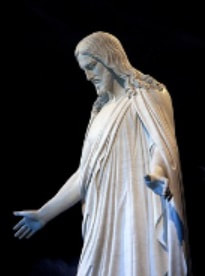 When it comes to bridging the gap, Christ is the ultimate bridge builder. His Atonement allows all to cross the chasm between how we see ourselves in mortality and what we can be in the eternities. Christ can help you achieve your greatest potential. He does this by transforming you inside, effectively changing your identity. He lifts your vision towards a higher standard and provides strength to lift your performance to match that standard. In essence, he changes your self image to match a higher self ideal. In contrast, the world would have us lower our standards to match lower performance. Rejecting covenant living may appease the natural man and woman, but only covenant living yields the fulfillment of eternal growth. Settling for low performance always invites a medium of mediocrity. Christ wants to raise us out of that mire into a more glorious state of being. We all want positive change in life, but you won’t act inconsistent with how you see yourself. Identity precedes behavior. So partner with the Lord and let Him lift your self image to eternal heights and strengthen you to do the daily tasks your positive change requires. Laying your daily brick will eventually result in the very fine structure that is your best life. And that will bring you more joy in your journey.
That’s why it didn’t take me long to identify “Eyes to See” by Michelle D. Craig as the Conference address to use for the program today. In her remarks, Sister Craig spoke of the need we all have both to see others deeply and to be seen deeply by others. And that’s possible for you when you acquire eyes to see. Stop doing what you shouldn’t 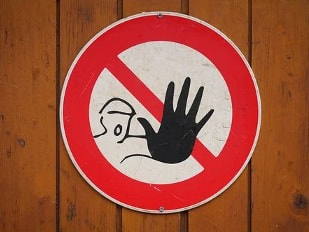 I’ve long spoken about self-talk. We all give messages to ourselves every day out of habit. For most of us, at least 80% of those messages are negative. A constant barrage of negative messaging can hold anyone back from fully living the joy to be had in life. The cure for that, of course, is embracing habits of positive self-talk. But you’ll find that next to impossible without first deeply seeing yourself the way God sees you. If you see yourself in any lesser light, it’ll be harder to accept your divine nature and heritage as a child of God. And you’ll feel awkward acting on what you don’t really believe. That’s why I love how Sister Craig began her remarks with the story of Elisha’s servant seeing a threatening army surround him and his master. But the servant set aside his fears when the Lord opened his eyes to see the truth of his master’s words: “They that be with us are more than they that be with them.” Sister Craig then declared,
If what you’re doing keeps you from living the joy surrounding you every single day, then the obvious first step to experiencing that joy is to remove the obstacle. Get out of your own way. Stop doing what you shouldn’t, and stop thinking in ways that lead you to do what you shouldn’t. Start doing what you should  Of course, you can’t just stop the bad you think and do. We’re all biologically hardwired to operate out of habit. Our self-talk and most other thoughts and actions we play out of habit. Our habits feed us the instructions we follow to navigate everyday life. But habits don’t change just because you stop executing bad instructions. Again, you’re biologically hardwired to have a habit, so when you encounter the trigger connected with that habit you stopped, your brain looks for a habit. Not finding one, it kicks in the default response, which is always to go back to the last habit you had. That’s why you don’t just quit bad habits. You must replace them with better ones. So once you stop doing what you shouldn’t, start doing what you should. And you can begin by partnering with the Lord and allowing Him to show the way. Sister Craig shared some beautiful stories of how people were blessed and uplifted when others stopped their normal routines, looked around them, and acted on promptings to go and do. She declared,
See the beauty all around you When you replace less effective habits of thinking and doing with more effective ones, you position yourself to see and to receive the deep joy that really does surround you every single day. That joy comes when you give your all to your true identity and purpose. But you can’t do that if you don’t first see your true identity and purpose. So start today to develop eyes to see. Stop thinking and doing what prevents you from seeing yourself and others as the children of God we all are. Start thinking and doing what opens your view to the marvelous truths of the restored gospel and the reality of the Savior’s marvelous Atonement. With a clearer vision of your true reality, you can press forward with joy amidst any challenge. You can feel better about yourself because you’ll see yourself in the splendid potential for glory bequeathed to every child of God. You can feel better about life because you’ll see the beauty that really is all around you. You’ll see more clearly the Lord’s hand working in your life and the lives of others. And that will bring you more joy in your journey.
But it's all really good discussion that touches on many interesting points. And that got me thinking. Pondering that and other LDS singles posts leads me to conclude that, when it comes to dating, natural is the enemy. Recognize the natural  You might wonder what that means. After all, these days anything natural is in vogue. It's associated with purity, innocence, and goodness. How can natural be the enemy? You don't need any mental gymnastics to answer that question in a dating context. You need only understand the differences between natural men and women and covenant men and women. The Book of Mormon beautifully expresses that difference. We don't usually discuss Mosiah 3:19 in terms of dating, but it possesses perfect applicability. Consider each of these words carefully, for this one verse teaches bibles worth of truth:
How do these words apply to dating? Increasingly in the world, natural men and women have destroyed dating and with it the families that might have resulted. Thinking primarily of self and following natural behavioral drivers have removed many partners from the dating scene and complicated it for those who remain. Know the difference  We Latter-day Saints covenant to be in the world but not of it. That doesn't mean the world doesn't influence us. In fact, the behavior I see some LDS singles displaying smacks very plainly of a worldly, natural mindset. Enticement drives the choices of natural men. Put enough enticement in front of him, and he'll pretty much follow the carrot at the end of your stick. Of course, all men aren't alike; some enticements enchant some men more than others. But the concept holds true for all natural men. Experience, namely the state of feeling desired emotions, drives the choices of natural women. We all know natural women; they have backup boyfriends, always look to "trade up" if they can, and are ruthless with other women who they see as their competition for their desired experiences with men. Conversely, covenant men and women value covenant living over their natural drivers. They seek to make and keep covenants. Covenant men still feel the natural tug of enticement, and covenant women still feel the natural tug of experience, but they don't follow after it. They choose to value covenant living over the natural focus on self. Put off the natural 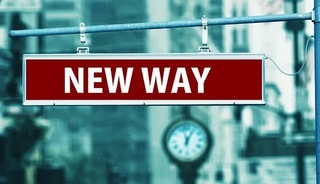 Natural men and women value self over covenants. The natural woman stays single by insisting on dating only perfect men who can provide her desired experience with emotion. Since most men aren't that, the natural man struggles with the lack of enticement, eventually opting out of dating to seek enticement in other avenues. Thus, following natural inclinations results in rejecting opportunities to marry sufficiently good companions and create families that can further the Lord's purposes for this world. The natural man and woman are indeed enemies to God. In reality, no single one of us (pun intended) is completely a natural person or a covenant person. We are each a mixture of both — good and evil, light and darkness, covenant keepers and covenant breakers. What we choose to value determines how much we are of each. Will we follow our natural desires when dating? Will we insist on having only the best when an "average" option can deliver not only the maximum amount of joy it's possible to experience but also make available the covenants we need for exaltation in the eternities to come? Will we view dating and marriage through the lens of self or through the lens of the family we will create out of that union and the generations that will follow after us? In so many ways, natural is the enemy. And it will always be the enemy unless the natural man or woman values covenant living over self. Only valuing covenant living opens the heart to the Savior and His marvelous Atonement, which can transform us from natural men and women into covenant men and women. And that will bring us more joy in our journey.
That said, many of us are still taxing ourselves. We are by nature social creatures, so it’s natural to respond to a crisis by nearing ourselves to others. Yet the current crisis keeps many of us physically apart. And without some plan to provide for needs, that separation is taxing many beyond their capacity. Focus on ability  We’ve discussed before the basic areas of life, what I call the spirit, the heart, the mind, and the body. Regardless of the names you employ, these areas each have their own needs, which will tax anyone’s reserves when left unmet. And the faith that optimistically inspires us to see beyond the current crisis can guide us to solutions amidst the current crisis. We achieve that result in large measure by answering this question: “What can I do?” Too many of us, yearning for a return to normal, seek after what we’d like to do had the pandemic not turned the world upside down. But that thinking won’t help us thrive in our new world. We must adapt or die. To thrive in a new reality, we must change our thinking to match the landscape. For example, before the pandemic hit, I was investigating exercise options. Then the pandemic eliminated the gym as an option. But instead of wallowing in my inability, which would just lead me to inaction and its attendant reality lacking results, I focused on answering “What can I do?” That question led me to using my own body weight for strength training and walking in my neighborhood for cardio. That combined with changes in diet have led to my first real weight loss success in a long time. Get your plan  In like manner, we can ask “What can I do?” to address any need in life. By focusing our attention on what we can do, we empower ourselves not only to conquer the challenges before us but to do so with a smile-laden gusto. We really can have joy in life regardless of our circumstances. That power to transcend our troubles resides in agency, God’s gift made meaningful by Jesus Christ. His Atonement makes it possible to triumph over sin and death, obstacles that separate us from God. Without that Atonement, our overcoming any obstacle in this world would have no meaning. We would all unavoidably perish (Alma 34:9). Of course, such a key component in our eternity did not come about by chance. It was part of a plan provided before this world was. What we see now created temporally God first created spiritually (Moses 3:5). Following that example as we answer the question “What can I do?” will lead us to the plans we need to meet our needs during the coming months. Rise above the challenge  With so much unknown at present about coronavirus, we can expect the current situation of sequestering and social distancing to last at least through summer. Do you have the plans and the means in place to meet your own needs during that time? When you fail to plan, you plan to fail. But you don’t have to fail. You have a choice. You have power within that choice to change your attitude and how you think. And when you change how you think, you change your life. You can feel real joy regardless of what negative or pessimistic circumstances surround you. Don’t tax yourself by failing to plan appropriately for your changed landscape. Ask yourself, “What can I do?” and then partner with the Lord as you answer that question. Those answers can structure a plan for meeting your needs for as long as the crisis lasts. The storm of pandemic may rage on the outside, but you can live with faith, optimism, and confidence on the inside. And that will bring you more joy in your journey.
|
Author
Howdy! I'm Lance, host of Joy in the Journey Radio. I've been blogging about LDS singles life since 2012, and since 2018 I've been producing a weekly Internet radio show and podcast to help LDS singles have more joy in their journey and bring all Latter-day Saints together. Let's engage a conversation that will increase the faith of LDS singles and bring singles and marrieds together in a true unity of the faith.
Comment
Joy in the Journey Radio encourages the free discussion of ideas but reserves the right to remove and/or block comments which do not conform to LDS standards.
Donate
Joy in the Journey Radio offers many free resources to help LDS singles everywhere, but it certainly isn't free! Help Joy in the Journey Radio in its mission to improve the lives of LDS singles by donating today.
Posts by Month
December 2022
Categories
All
|
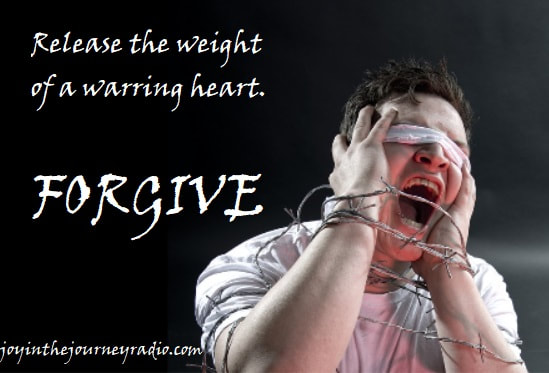

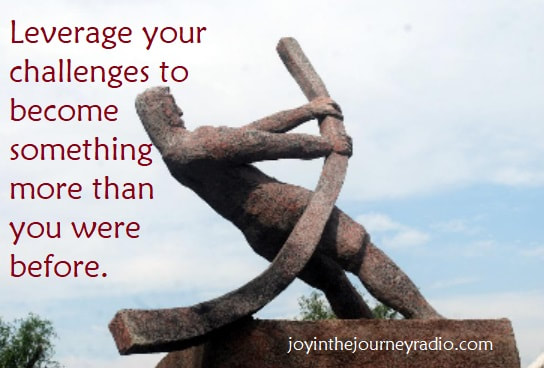
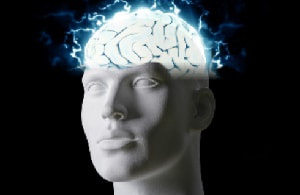
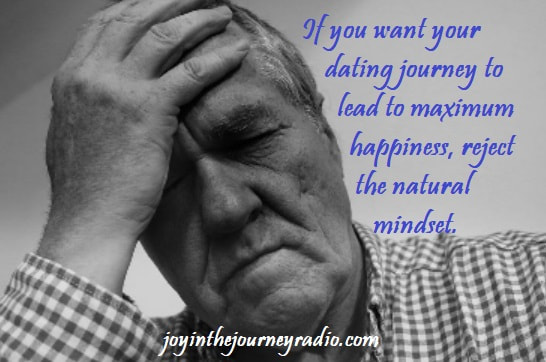
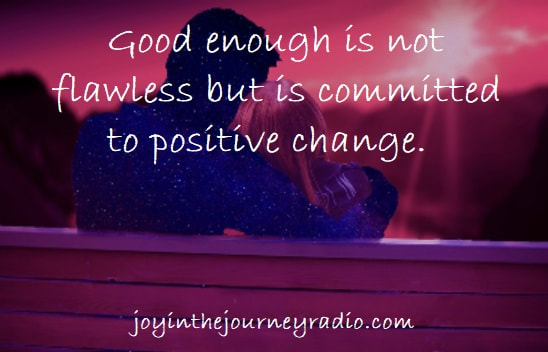

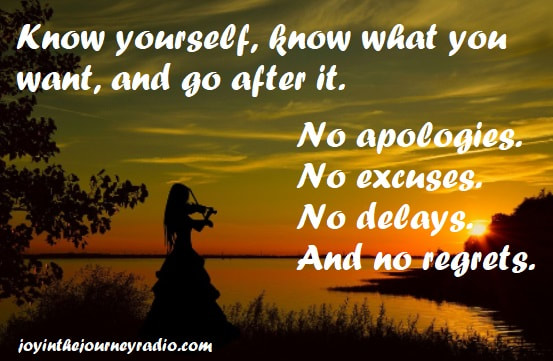
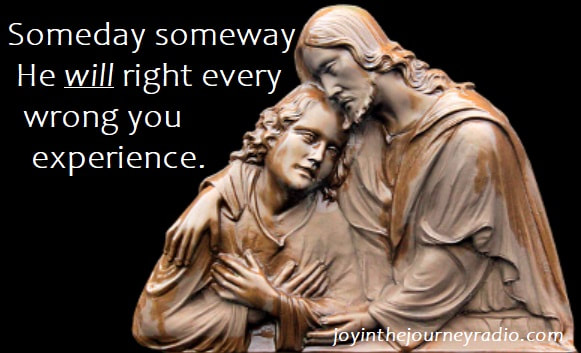

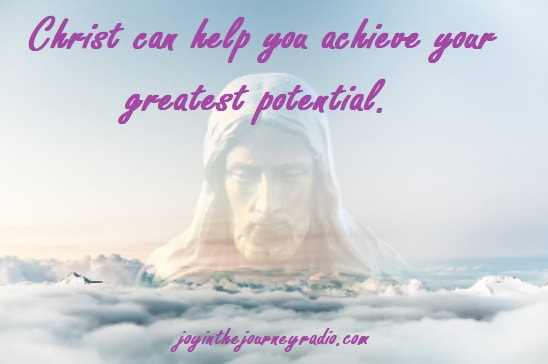
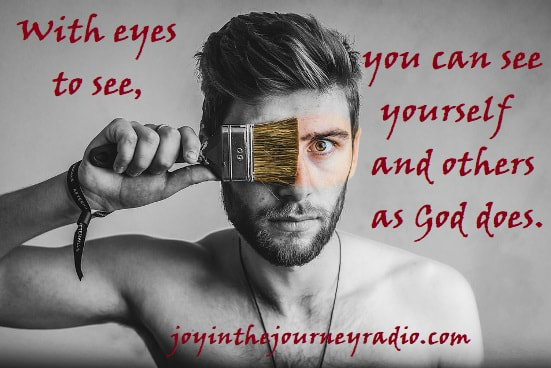

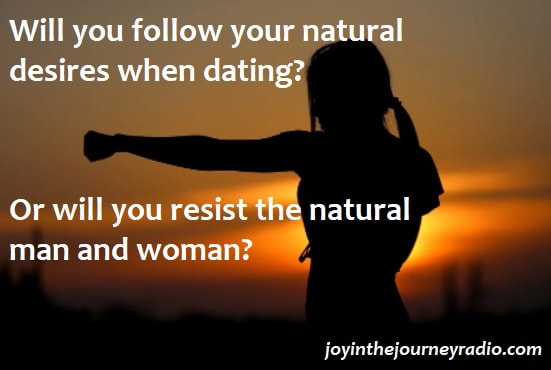

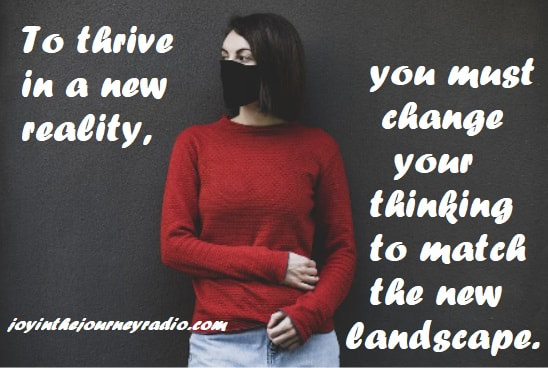
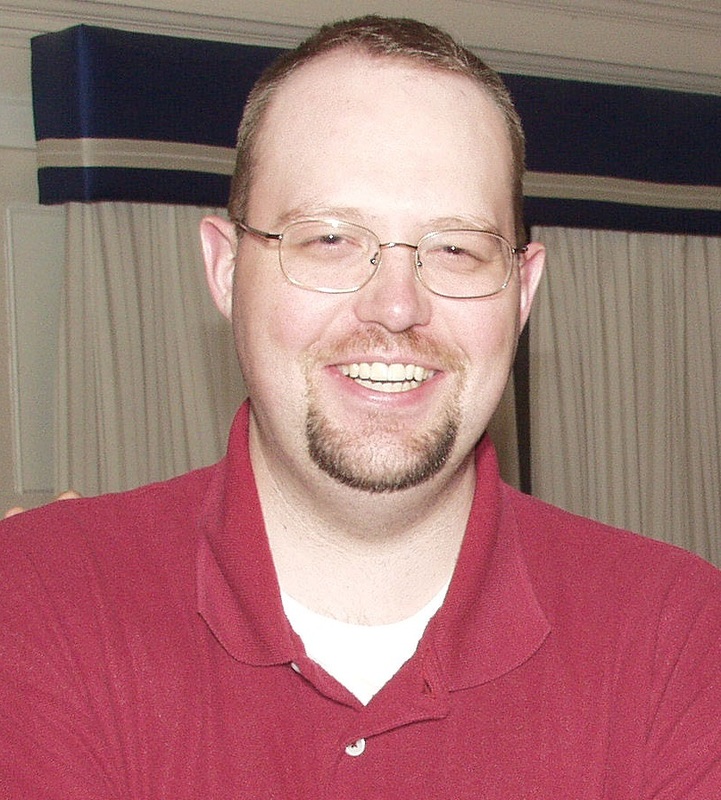
 RSS Feed
RSS Feed